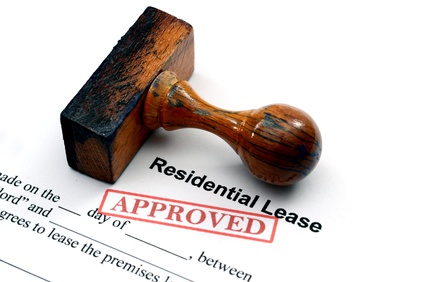Right to Rent Checks Now Compulsory UK Wide
Published on February 10, 2016 by Sarah Mac

Before you give your new tenant your tenancy agreement to sign, have you performed all the necessary checks to ensure they have a right to be living here? If not, you could be laying yourself open to some very expensive penalties. The maximum fine that can be imposed on non-compliant landlords is £3,000 per tenant. The rules apply to anyone who sub-lets or takes in a lodger as well as those who rent out a complete property that they own. Letting agents must also comply.
On February 1st 2016, the part of the Immigration Act 2014 that refers to the right to rent came into force across the whole of England. Previously, only landlords in certain areas of the West Midlands were required to comply. Now it applies to everyone, everywhere in the country. It is one of the government’s measures to stop people living and working here illegally, and landlords are expected to do their bit.
How do I Make Right to Rent Checks?
Most people with a right to be here can easily provide adequate proof and the checks needed are usually fairly simple, as it shows in this government video.
What Documents do I Need to see?
The government has listed the documents landlords need to see and take copies of. Keeping copies yourself is proof that you have undertaken the checks required. Don’t forget to make a note of the date you make the check.
The government has issued document lists together with a useful checking tool which you can use as guidance. The lists are divided into those that mean a person can be here for as long as they wish (List A), and those that show they have time limits on their stay (List B).
If the landlord is satisfied by one or more documents from List A, the checks do not need to be repeated. This list is divided into two groups:
- Group 1 – single documents that are adequate on their own. This includes certain passports and certification of registration or naturalisation as a British citizen.
- Group 2 – a list of those from which a combination of any two is required. This includes appropriate birth or adoption certificates and a UK driving licence, for which the two parts are classed as one document.
The documents in List B state the date when the person’s right to rent expires, so landlords must conduct follow-up checks. To comply with regulations, a check must be made during the 28 days before the date the right to be here runs out.
Is There Anything I Should be Aware of?
What you really don’t want is to be accused of discrimination on the basis of race, colour or ethnic origin, which is illegal under the Equality Act 2010. British citizens are ethnically diverse, and it is not possible to distinguish them by their appearance or accent. A court appearance following a claim of discrimination can have financial consequences and your reputation and business as a landlord could suffer.
The sure-fire way to avoid this is to make checks on every potential tenant: make it standard policy. That way no-one can successfully claim they are being discriminated against because you treat them differently to someone else.
If you are careful to check the documents of each new tenant, you will not fall foul of the law because of either the Right to Rent or the Equality Act.

